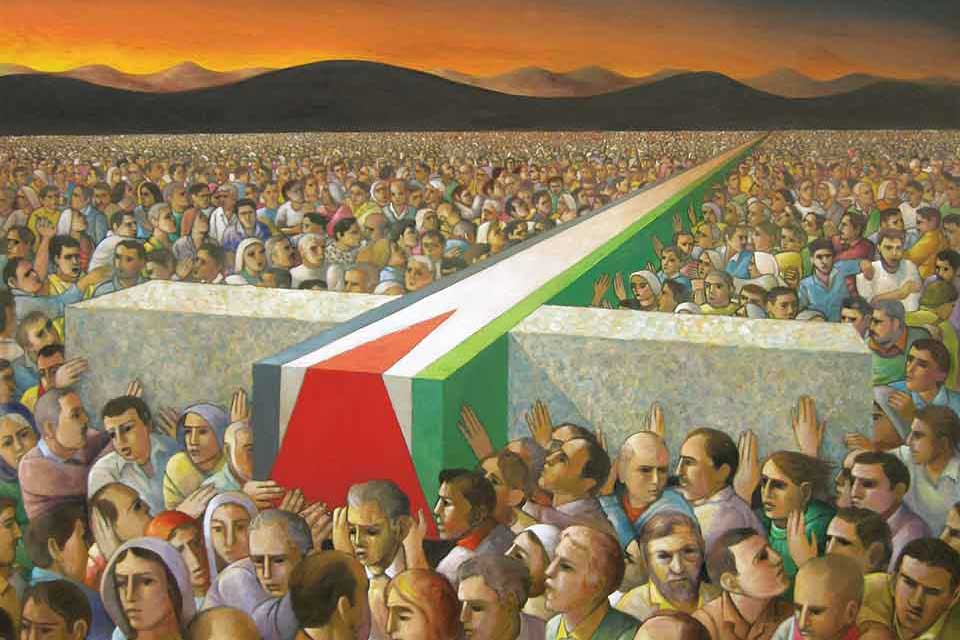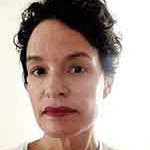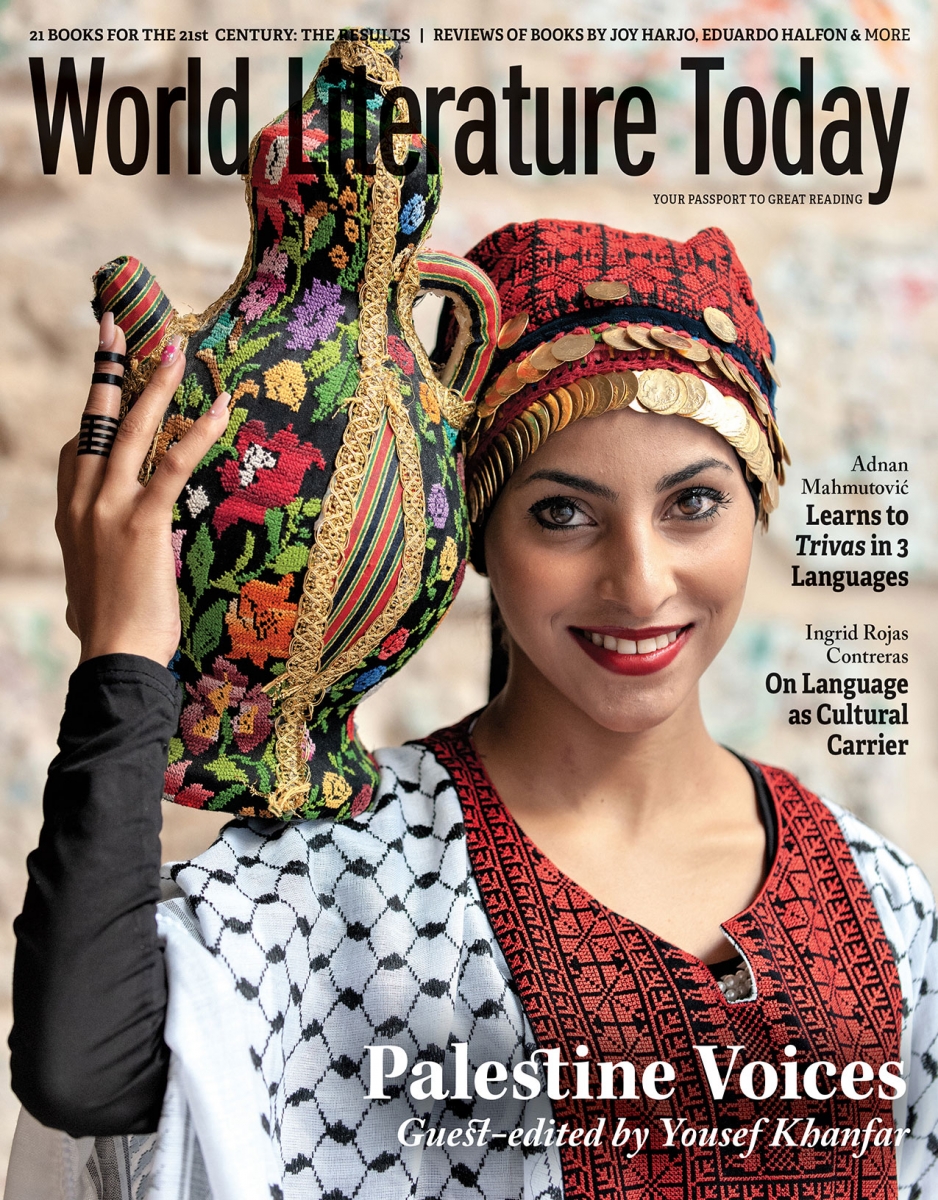The Bodies

Respect the gods, Achilles, and show mercy towards me.
–King Priam, Book XXIV, The Iliad
When they wheel in Hassan, we don’t expect him to join in. Not yet. Each of us has needed time to adjust, to come to grips with the fact that we are no longer alive, yet somehow we continue to inhabit our bodies. He’s rolled to an empty space in the corner; the wheels of his metal stretcher cease their squeaking once the brakes are applied. He’s young, maskeen, so we allow him to cry and whimper for his mother. We listen and refrain from shushing him—at least for the first day.
The double doors slam behind the orderlies, a jarring noise that rattles our bones. Muneer recites surat yaseen, and the rest of us respectfully keep silent amid Hassan’s low keening. Soon the room will populate again with the living, the fluorescent lights vaguely illuminating our closed eyelids, a stroke of pale orange. Or perhaps we only imagine it, a childhood memory tugging us back to when we are lying in an orchard, the sun beating down on us, warm mulberries staining our lips.
We wait for the clacking of their footsteps across linoleum tiles. Time is a strange matter here, what seems like minutes might be hours, like whey slowly strained through cheesecloth. We can’t make out day from night in this windowless room except when the doors open again and we deduce it’s the start of another workday.
Today, the scent of freshly cut lemons trails the heavy footsteps passing each of us.
It’s Ustaz Lemon Zest, Ismail says and we snicker.
Our sense of smell, like hearing, endures, an involuntary reflex, and we’ve come to distinguish the ranking coroners from the others: their monotonous voices as they lecture, their distinct odors—menthol cigarettes and fresh soap—hovering as they pass our slabs.
We can speak out to one another in the manner a ventriloquist throws his voice, like an imperceptible twitch of the lips. Once we rediscover our voices we can cast them out like a fishnet, our words and sentences catching across the room.
Fuck his mother’s cunt, Ismail adds. Cursing is an unscrupulous habit of his, and we chastise him, though not too harshly. We try to preserve a measure of decorum from our past lives. After all, we are dead—not animals.
We try to preserve a measure of decorum from our past lives. After all, we are dead—not animals.
We’ve come to feel a prickly affection for Ismail, who was tortured to death under arrest. He is stone-silent when the coroner pokes and prods him, announcing to the other examiners where the electric jolts had been administered on specific areas of his body.
Young Hassan is temporarily distracted by Ismail’s cursing and stops whimpering. He hasn’t quite let go, but his attention has begun to drift to our conversations.
Ustaz Lemon Zest is a chief examiner, we’ve surmised, and leads a small group around the room, permitting the other strangers in his charge to trace their scalpels across our chests and limbs. Spicy aftershave wafts in the air—a new and confident male attendant. And—what is that we detect? A hint of gardenia? We keep quiet, waiting for a woman’s voice to reverberate in our ears even if we can’t understand her words.
Lateef, who worked with a legal permit inside Israel, alone can decipher their language. Soldiers shot him ten times in the chest and abdomen near the border. The bus carrying the workers had gotten a flat tire, and Lateef descended to help the driver fix it. He waved his hands at a passing army jeep. The report later claimed he’d charged toward the soldiers with a crowbar. The rest of us listen to his disjointed translations, and we’re content with not comprehending their language—it’s a tiny recompense since we’re unable to drown out their voices. Our hearing is a blessing and a curse, you understand.
Ustaz Lemon Zest speaks incessantly, pausing beside each of our bodies. If we harness enough energy, we can flick a finger like a whisper from beyond. Our only real amusement. It was Ali who discovered this trick. He was to be married a week before a sniper’s bullet entered the back of his head and exited through his right eye.
Amani’s dowry was unmatched in my village, he boasts, carefully describing each piece of gold he’d selected, accompanied by his mother who haggled with the jeweler, right down to a pair of coin earrings.
So who do you think is fucking her now? Ismail taunts.
We suck our teeth in disapproval though we’re glad it brings Ali’s bragging to an abrupt end.
I wish her every happiness, Ali counters after some time.
We know Ali doesn’t truly mean this—each one of us, too, pretends to wish life has gone on without us, while the very possibility our families and lovers will forget us stabs our souls. So much still lingers on our padded fingertips: the soft heads of our newborn babies, the delicate nape of our wives’ necks, the velvet skin of a ripened fig. A phantom tickle.
Like time, memory is a tricky thing.
Like time, memory is a tricky thing. In the cold silence of the room, when we grow too morose to speak to each other, our memories shift and morph like shadows on the wall, some instantly familiar, others gathering again from some place in our brains we hadn’t tapped in a lifetime. The air of invincibility as the ball hurtles through makeshift posts on an empty field, our mates lifting us on their shoulders, screaming Goooooallll. The flutter in our stomachs when girls suddenly become important. That first terrible dread clutching our chests when we’re stopped and ordered to corroborate who we are, our trembling hands holding out our haweeyas, our eyes gawking at automatic weapons. And the searing shame we feel afterward for being afraid.
Soon enough, young Hassan joins us, still timid as pubescent boys tend to be in the presence of men. He was walking to school when a heavy sack was thrown over his head, a swift kick to the back of his legs collapsing him to the ground. He was dragged to an armored truck. Naïve and terrified, he resisted, kicking and punching until he was strangled by invisible hands over the sack, the weight of someone’s body crushing his chest.
Will my mother come soon to fetch me? he frequently asks, and we don’t have the heart to tell him how long the rest of us have been confined to this room. From what Lateef gathers from the examiners’ chatter, there is a place our bodies are taken after these prolonged examinations. The morgue, most likely. We don’t admit out loud how we’d rather stay here, the unknown beyond this room a terrifying, unimaginable landscape, far removed from our villages and towns where our families wait. Until then we languish on the slab, ignored like old furniture, once gleaming and new. Sometimes one of them accidentally bumps us, and we shudder from deep within, as if inside a reverie from which we don’t want to wake.
Keeping track of the days is futile, and we succumb to a time warp that is at once peaceful and precarious, cradling us between those moments the double doors open and close. Perhaps this is what it was like in our mothers’ wombs.
One day, orderlies wheel in a steel stretcher, carrying a new one. Lateef quickly tells us what he understands: it is a woman of their kind stabbed to death by her husband. This incredible fact confounds us, that these people are capable of killing each other, too.
Hassan feels an instant affinity for the woman. He desperately wants to communicate with her, and we tell him to hush. She is not one of us, after all. Her desperate sobbing grates our ears, and Ismail tells her to shut up in Arabic. She shrieks and shrieks until she realizes no one will come. She refuses to speak to us.
Hassan thinks we can’t hear him whispering to her: Do you have children? Any boys? I won a ribbon for my singing in the school pageant. My favorite meal is maklooba—but no eggplant, mind you, because my mother knows I hate it.
The woman snaps at him, her ferocious tone stunning poor Hassan into silence. Lateef won’t tell us what she’s said.
The double doors open yet again and the woman is hastily whisked away by orderlies amidst a tirade of reprimands from Ustaz Lemon Zest. Lateef reiterates to us the mistake committed by the staff. We aren’t surprised, but poor Hassan is disheartened—even Ismail’s funny anecdotes about being shot in the ass with a friend’s slingshot, or being chased by a provoked sheep, cannot soothe him. Hassan’s childish giggles halt like the instant slamming of those double doors. We gently remind him: she is not one of us.
Why can’t I go home? he demands, sniffling back tears, wanting to be brave, the quaking in his voice threatening a new wave of bawling. It’s easier to be a boy-child among girls and women. As men, we’ve been taught to swallow our sorrow, to stomp out our fears.
You’re still a threat to the State, ya habibi, Ismail scoffs. Dead or alive. He doesn’t mean to be cruel, but we quickly chide him.
Soon, ya Hassan, we tell the boy. Inshallah soon. Come now, why don’t you sing for us? One song, habibi. But Hassan can’t be cajoled, and he doesn’t speak to us for a long while.
* * *
Without warning, they take away Lateef and Muneer. They’ve been here the longest. In Lateef’s absence, we’re no longer privy to the exchanges between Ustaz Lemon Zest and the others who cycle through this windowless room. The scent of fried falafel, shaving cream, and hand sanitizer hangs over us.
We give du’aa, as Muneer would have done for any of us, praying it’s not the other place he and Lateef have gone to, but are finally traveling back to their homes. We instantly miss Muneer’s recitations, as useless as they seemed. Faith spikes our throats, and we jumble the words of supplication, once familiar and consoling, now slipping away like the water we hear the coroners splash across their hands as it flows down the drain. Muneer had patiently fanned that faint spark in our spirits, reminding us that God knows more than we could ever fathom.
Faith spikes our throats, and we jumble the words of supplication, once familiar and consoling, now slipping away like the water we hear the coroners splash across their hands as it flows down the drain.
* * *
Hassan stops asking for his mother. He’s quiet while the rest of us banter. Then one day he asks, What comes next? breaking his silence. His voice, once shaky and expectant, is hollow, and we know he’s shut that door on his former life as we’ve all done. Now he demands to know what lies ahead so he can prepare. He’s no longer a boy.
Time stretches and contracts until another joins us—Emad, a doctor of philosophy. A bulldozer, set to raze an olive grove, ran over him, crushing his body while he and a small group had foolishly tried to prevent it.
Emad is an atheist. How can this be? he laments. Why am I still here? His stoic ideals of existence have betrayed him, choking him like blood filling a cavity.
All that learning for nothing, ya doctor? Ismail jeers.
We’re relieved Muneer is no longer around to hear the doctor’s blasphemous rants, his befuddled complaints. Like Hassan, we leave the doctor alone, don’t bother contradicting him. He’ll come around.
* * *
Two young brothers are brought in, and they refuse to speak to anyone except each other, like two thieves conspiring. One won’t stop weeping, the other scolding him in a low tone. We don’t know the precise details of their deaths—both shot. One slowly expiring before the medics were permitted to reach him.
Hassan surprises us when he begins to sing. Perhaps it’s to distract the brother from his crying, or to drown it out completely. It’s a popular song even the oldest among us know. The sound of lilting and crescendo electrify our bodies—a sound more sublime than the Holy Book verses Muneer had once recited to us. It penetrates our mottled, stiffened skin, sinks deep into our bones, making us as light as air, dead limbs no longer weighing us down on the slabs.
Ismail whistles and Hassan sings louder, proud again like the boy he’d once been when his teacher fastened a bright red ribbon on the ironed lapel of his school uniform. The audience rises to its feet applauding, and his mother’s ululation resounds across the small courtyard.
By the final refrain, we can barely speak, thrust back into our old lives, a melody playing from a car radio, tires kicking up dust in our wake. We go home to our loved ones, our dinner ready, our children’s faces shining. And our wives grinning at us as they scoop more rice into our dishes. Eat up. Elhamdullilah, there’s plenty here.
Chicago











